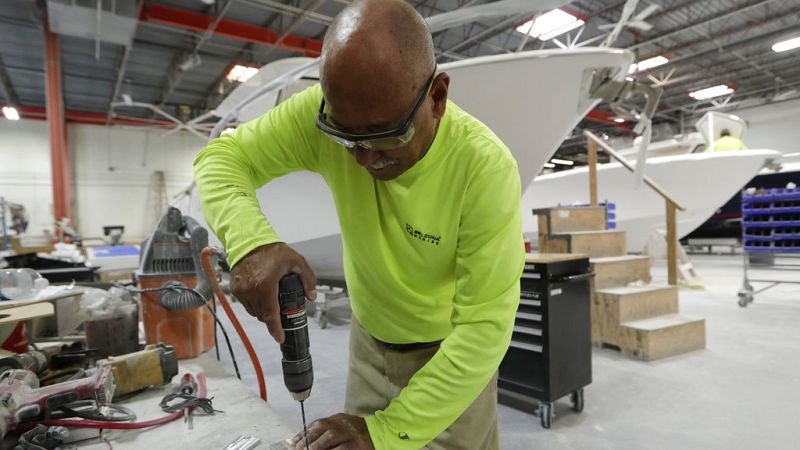EU adjusts strategy to hit back at US tariffs

Despite repeated warnings that it would respond "firmly" and "quickly" to US tariffs, the EU is still finalising its countermeasures after Washington made good on its threats by imposing sweeping 20% tariffs on all imports from the bloc on Wednesday.
“We are buying the space we need to negotiate with the Americans and we are looking at targeting our response in the most effective way possible,” an EU official said on Thursday, adding that this was being considered “both in the terms of how we impact on the US if necessary” and “in terms of saving our member states and our industry the pain wherever possible.”
Already bruised by opening tariff salvoes from the Trump White House - 25% on steel and aluminium, 25% on cars - the EU must now also factor 20% US tariffs on all its imports within its response.
Two lists targeting US products are already being discussed by member states to come into force by mid-April, further countermeasures are now under consideration for a second wave of retaliation - in response to the tariffs on cars and reciprocal tariffs - which could come into force at the end of the month.
The US' trade surplus in services with the EU could be targeted, and the EU might also deploy an 'anti-coercion' tool adopted in 2023, which would impact business licences and intellectual property rights.
“We are not taking any option off the table,” a senior EU official said, claiming that any response should be “proportionate”, adding: “We are not in the business of escalating, we are in the business of solving things."
EU Trade Commissioner Maroš Šefčovič will speak to his US counterparts by video call on Friday, in an attempt to keep a path to dialogue open.
The EU wants to negotiate “from a fair position and a position of strength”, the same senior EU official said, adding that countermeasures will not be designed as a “punishment” so much as to “incentivise negotiation with the US”.
Negotiations could even aim to lower tariffs than existing tariff rates applied on both sides of the Atlantic, the official said, adding: “We already have low tariffs but we can lower them perhaps further and to do that in fully balanced and reciprocal manner.”
The US has asserted that the EU currently applies blanket 5% tariffs on US imports. Another senior EU official said by contrast that average EU tariffs on exports from the US was 1.2% in 2023, and claimed that average tariffs applied by the US on EU imports reached 1.4%.
The EU expects negotiations surrounding five sectors considered key to the US - cars, aluminium and steel, semi-conductors, lumber and pharma - to be toughest, as reported.
Today

